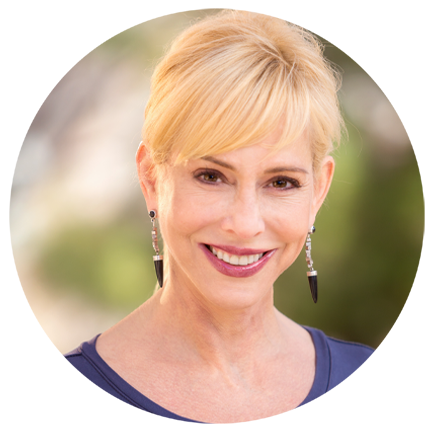In the human experience, certain archetypal issues at some point impact us all. These very deep wounds affect everything we do in our lives – but often lie beneath our awareness until a crisis brings them to the surface. This sheds light on what’s really driving our behavior. And then, we have an opportunity to make the profound changes that our soul requires.
One of these wounds is separation: the feeling that we’re existentially alone and isolated from others. For some people, the circumstances of their lives make this wound very obvious. But for others, it’s far more hidden. In either case, we all encounter the fear of our own aloneness at times.
When we carry around this soul-level wound, we feel forsaken. We may feel like we don’t fit in; like what’s attainable for other people isn’t for us. This feeling of separateness not only disconnects us from others, but from our own, vital life force. In other words, we lose touch with who we truly are.
While the separation wound is painful, identifying it actually presents a beautiful opportunity to reclaim our relationship with life. Let’s take a look at how this trauma happens, what we do to try to fight it, and what can be done to release the stories we create around it and begin to truly heal.
How the Separation Wound Occurs
We first experience this wound when we realize we’re blocked in some way from unconditional love. And oftentimes, this happens very early in childhood. This can come from a pronounced, traumatic event like being separated from your parents. Or, it can happen developmentally over time. In fact, some people believe that being born is a fundamentally traumatic experience, as we pass from the oneness of shared consciousness into the separate world of forms.
Beyond making us feel disconnected from others, the separation wound keeps us from the love of ourselves. And in many cases, this leads us to perpetually seek out love from other people, creating a perfect storm for codependent relationships.
The Ego in Survival Mode
As social creatures, we humans tend to manage our interactions based on our need to be liked and loved. And whether or not we realize it, this often involves a great degree of people-pleasing and social performance. But all the while, we can’t completely accept love from the people closest to us when we don’t believe that we’re worthy of it.
Our egos are designed to help us survive. And this survival system tends to operate from a place of fear, because it helps us avoid danger. Proving our fears to be true, therefore, confirms our sense of predictability and control. And while this may in some ways make us think we’re more stable and safe, the truth is that it prevents us from being present for the fullness of our own lives.
Escaping Via Denial and Control
Our core beliefs drive everything we do. And the belief that we are cast out from love has the power to redirect our entire emotionally reality. This affects how we view ourselves, what kinds of experiences we attract into our lives and how we relate to others. We develop any number of behaviors in an attempt to control ourselves, our circumstances and the people around us. Underneath all of this, what we really want is to avoid overwhelm and pain. And as a result, we often construct a false sense of self that we feel safer sharing with the outside world.
The irony of this is that, while designed to keep us safe, this lack of trueness to ourselves ultimately makes us miserable. It hinders our creativity, sexuality and expression, and therefore our ability to connect fully with life. It prevents us from being authentic, and instead limits us to a reality in which we’re out of touch with our true selves. In truth, controlling is simply a compensating behavior designed to shift the blame elsewhere so that we don’t have to face our own suffering.
One former Sanctuary client, Joe, describes how this attachment to control made him feel:
“My addiction was control. And therefore, I was scared all the time. I was hypervigilant. I was angry. If it was a situation that I couldn’t control or know everything about, I couldn’t be in a room with it. I couldn’t be in the dark; I couldn’t even be in a quiet room.”
Fear-Based “Solutions”
A common response to this crisis is to try to “fix” what’s wrong from a standpoint of fear. “I came here with that fear. I came here thinking somebody’s going to hurt me, I’m going to be put in a place that I can’t control,” said Joe about the state he was in when arrived at The Sanctuary. “I’m not going to be able to control my anxiety or my anger,” he thought. “These people are going to hate me because I can’t get my stuff together.”
The thing about our attempts to control everything around us and check out of uncomfortable emotions is that eventually, it stops working. “You become emotionally numb at some point, where it’s just too hard to handle,” Joe said about reaching his breaking point. “And when being emotionally numb doesn’t work, then comes the anxiety, depression, stress, fear, feeling lack of control, feeling unsafe in your environment and always feeling like you’re going to get hurt.”
Uncovering Core Beliefs
Each and every one of us carries deeply held beliefs about ourselves that are almost too painful to acknowledge. And because of that, we often don’t acknowledge them for much of our lives. But continuing to deny the existence of these beliefs is exactly what gives them so much power over us. Without our awareness, they’re always operating, like a computer program running in the background.
Part of what makes these core beliefs so hard to detect is that they feel normal. We become so used to thinking and feeling the way we do that we come to believe that’s all there is. But the truth is that so much more is available to us in life. Each of us has the ability to discover our gifts and live with purpose. Uncovering what’s holding us back is the first step to releasing it and opening ourselves to life. And this is exactly the radical shift that people experience in their healing journey at The Sanctuary.
Healing in a Supportive Environment
The Sanctuary is a decidedly nonjudgmental place. In our small community of equals, in which we admit a maximum of 10 clients at a time, everyone is treated as a member of our family. Clients and staff eat meals and enjoy activities together, and there’s no impersonal veil between you and your therapists. This makes it far easier to open up about issues that are challenging you, and dig deeper into your work of healing. Joe discusses how this atmosphere of acceptance made a difference in his treatment process, in the context of his life experience as a transgender man:
“I didn’t feel that way at all here. Because I felt like I could just be myself. I felt like I could talk about my process – my transition – and I wasn’t judged… It’s such a relief and so comforting to know that I can be somewhere for six weeks and not have to hide it. Where I don’t have to be ashamed of it. I don’t have to hide it or think that anybody’s going to think any less of me or love me any less or support me any differently. The staff embraced me so well that even when I did get anxious, I wasn’t judged for it. No one shamed me for the anxiety I was feeling. I could walk out of the room and take a breather or take a break from a session.
“I can just be me. And it’s one of the few places that I’ve ever felt that way.”
Returning to Your True Self
While painful, coming to terms with our core wounds and their effects on our lives is necessary. When it goes from being something that controls you from the shadows to something you’re consciously aware of, it kick-starts a process of incredible transformation. Eventually, this healing journey allows us to reclaim our personal power. It reconnects us to who we truly are. Joe reflects on the outcomes of his healing journey at The Sanctuary:
“I was able to own that power of who I am. [The staff taught me], ‘It’s who you are, and you need to take that power back and own it, because we love you for it. We just want you to know that is who you are, and that is great the way it is.
“The anxiety and fear around those things are just gone. I’m not scared anymore. I’m just not.”
At The Sanctuary, our holistic treatment program is not designed to “fix” you, because there is nothing wrong with you. This healing journey is one of empowerment – one that allows you to reclaim lost parts of yourself and bring your strengths forward so you can live the life you truly want to live.
Contact us to get started on your journey of transformation today.
Read More about Soul Sickness and Core Wounds in our 5 part Series.
Soul Sickness and Core Wounds, Pt. 1: Abandonment
Soul Sickness and Core Wounds, Pt. 2: Abuse
Soul Sickness and Core Wounds, Pt. 3: Betrayal
Soul Sickness and Core Wounds, Pt. 4: Defectiveness
Kelley Alexander JD. is the co-director of The Sanctuary at Sedona and has worked over the last decade to develop its innovative Integrative Addiction Recovery Program that has helped hundreds of clients to be recovered from addiction and co-occurring disorders. Through her pioneering work, Kelley and her team at The Sanctuary also work with clients to overcome issues related to codependency, anxiety, depression, and PTSD. A JD and former practicing attorney, Kelley holds a BA in World Religions and has done graduate work in psychology. She is an ordained minister, certified shamanic breathwork facilitator, and a graduate of the Four Winds Healing The Light Body School, the premier energy medicine program founded by Alberto Villoldo. Kelley has also been a student of Dr. Joe Dispenza since 2009. She is a member of the Association for Comprehensive Energy Psychology and the Institute for Holistic Addiction Studies. She is a frequent lecturer at seminars and conferences throughout the United States.
[email protected]


